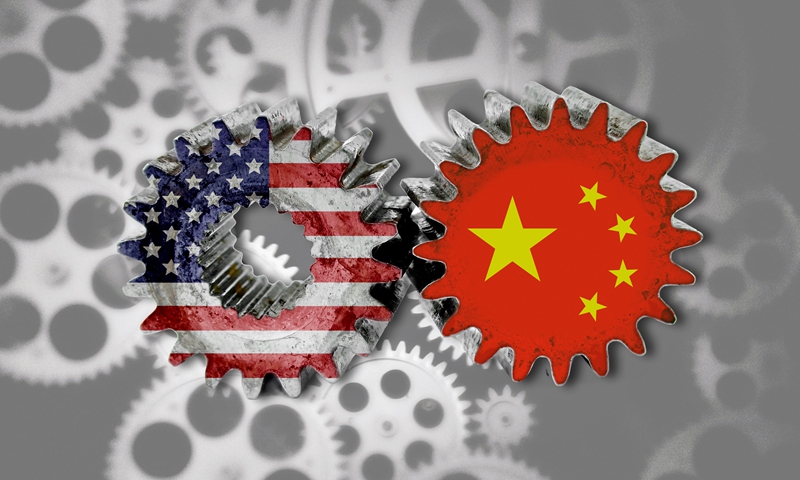
Photo:Global Times
The US Congress is reportedly considering vetting American tech startups which have been receiving federal funding through the Small Business Innovation Research program (SBIR). Citing a study by the Pentagon, it claims that the program has been "exploited" by China.
The study conducted by the US Defense Department last April revealed that, on eight cases, some US startups dissolved their American companies and then continued their work at institutions that support the Chinese army, the Wall Street Journal reported on Sunday.
There are also SBIR recipients that are "taking venture-capital money from Chinese state-owned firms" or "working with Chinese entities that support the country's defense industry," the report said.
The report is yet to be confirmed but Washington's clampdown on China-US tech cooperation is no secret and has even reached paranoid levels. Any clue that may link American companies to China or Chinese firms could trigger "security concerns" among some US politicians.
However, the groundless "security concerns" are only a cooked-up story used by certain US politicians to contain the development of China's technology. The case of China's 5G frontrunner, Huawei, has been a vivid example that demonstrates Washington's ill intentions. After years of vilification against Huawei's products and technologies, the US has offered no evidence to support its accusation on "security concerns."
For decades, research and development (R&D) on science and technology has become a transnational practice with developers seeking financing, cooperation and markets across the world.
Wall Street has been investing in innovative projects around the world, through which it accelerates technology development and earns capital gains. Similarly, it is perfectly normal for Chinese capital to invest in promising innovative projects in the world, including in the US.
Meanwhile, many overseas R&D projects are also seeking to incubate their innovative projects in potential markets, and China is one of the most ideal destinations. From market size, technology level and consumers' income to the overall business environment, China has developed great advantages compared to other markets, especially for the development of innovative projects.
Other than competitive capital sources, China, as the world's second largest economy and top manufacturing hub, is offering a place for overseas innovative projects to find partners throughout the industrial chain and quickly transform their technology into products. High market conversion rates in turn would facilitate the development of new technologies, not to mention that China itself is the final market of many global new tech products.
Under such circumstances, it is not hard to see that US tech startups would be the victims if the US Congress really attempts to cut ties with their Chinese partners or markets.
In fact, the attempts of the US government to decouple from China have long been proved as a lose-lose game. Take the tariffs war launched by the previous Trump administration as an example. The US businesses been hit harder than their Chinese counterparts.
Despite the added tariffs, bilateral trade has kept surging. In 2021, China-US bilateral trade grew 28.7 percent year-on-year to $755.6 billion, with China remaining the largest source of US' trade deficit.
Like the tariffs disputes launched by the US, cutting ties between China and the US in the tech industry is not effective and will benefit no one. Rather, it will dampen the innovation prospects of US tech startups. Washington should understand that following the economic rules and respecting cooperation between the two sides are the right choice.
The author is an editor with the Global Times. bizopinion@globaltimes.com.cn




